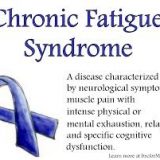Manulife tried to avoid its own policy, and failed.
On August 17, 2009, The BC Supreme Court held that as between the limitation period in an insurance policy and the limitation period set out in Section 22(1) of the Insurance Act of British Columbia, the limitation period in the policy prevails so long as it is not shorter than that prescribed by Section 22(1). In Colgur v. Manufacturers Life Ins. Co., 2009 BCSC 1125, the insurance company, Manulife, applied for a dismissal of the Ms. Colgur’s claim for long-term disability . Ms. Colgur was employed by the Royal Bank of Canada as a customer service representative....
read moreAn exclusion clause is only valid if it is unambiguous.
On September 16, 2008 the Alberta Court of Appeal confirmed in Duke v. Clarica Life Insurance Co. 2008 ABCA 301 that an ambiguous term in a critical illness policy exclusion clause should be construed against the insurer. The insurance company had issued a critical illness policy to Mr. Duke. When Mr. Duke developed Parkinson’s disease, the insurance company denied his claim, relying on an exclusion clause which stated: “if the insured person had a covered critical illness or any symptoms associated with a covered critical illness before the date the Policy came into...
read moreManulife found to be a “bully” and ordered to pay $250,000 punitive damages.
On December 14, 2007, the Ontario Court of Appeal upheld an order that The Manufacturers Life Insurance Company (“Manulife”) pay $250,000 in punitive damages.
read moreManulife wrong to deny disability benefits for chronic fatigue.
On November 28, 2005 the BC Supreme Court decided that The Manufacturers Life Insurance Company (“Manulife”) was wrong to deny long term disability benefits to a woman suffering from chronic fatigue syndrome. The case was called Milner v. Manufacturers Life Insurance Company, 2005 BCSC 1661. In September 2001, Cindy Milner, age 45, was hired as a manager at a residential care facility for the elderly. She was responsible for managing nurses, care aids and related staff and ensuring that the facility had all the necessary supplies. In late October, she contracted pneumonia and was...
read moreFailing to disclose prior drug use is not fraud.
On November 23, 2004, the BC Supreme Court found against Manulife Financial, and ordered it to pay death benefits to a widow, in Metcalfe v Manufacturers Life Insurance Company, 2004 BCSC 1526. An insured (“Mr. Metcalfe”), who died of a drug overdose, had purchased a life insurance policy seven years before his death. Although he did not disclose to the life insurance company that he had been in a drug treatment program for cocaine and heroin use three years before obtaining the policy, the life insurance policy was determined to be valid, because the insured did not fraudulently...
read moreManulife must pay death benefits and double costs.
On March 19, 2002, the Alberta Court of Queen’s Bench ordered Manulife to pay benefits under an accidental death policy, and to pay double costs to the plaintiff in McCoy v Manulife, 2002 ABQB 298. The plaintiff’s brother, Ward McCoy, was covered through his employment by a policy of life insurance and accidental death insurance provided by Manufacturers Life Insurance Company. The plaintiff, Keith McCoy, was the beneficiary of the policy. The brother died on the 23rd of June, 1997. He had been drinking over a three-day period. Twelve hours after he stopped drinking he suffered cardiac...
read more









